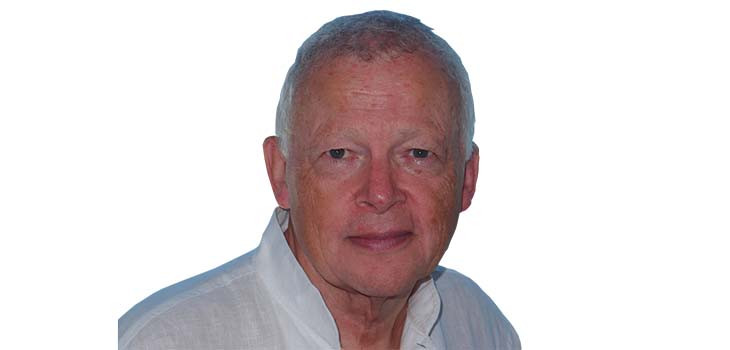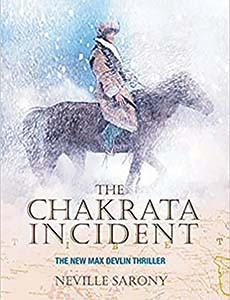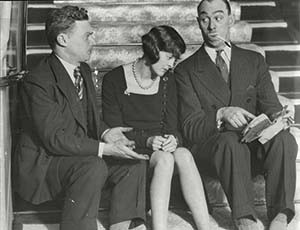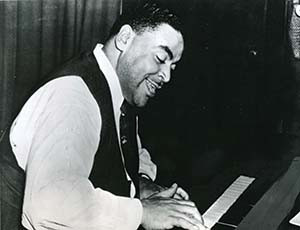*/

Growing up, when my father was a star of stage and radio, my immediate horizon was the theatre; performances of every description, live music, the mysterious way in which the actors did (or did not) electrify their audience and the free masonry of the backstage world. The pure magic of the moment the musical director tapped his baton and the pit orchestra broke the susurration of the crowd and the thrill began. The performers projected out over the stalls and up into the Upper Circle and held people spell-bound. Whether King Lear or Billy Elliot, great performances still move me to tears.
This dynamic engagement between actor and audience is what I see in jury trials; they are living theatre. It was my good fortune to see some of the great comedians like my father Leslie Sarony and Jimmy James. I would marvel at their timing and their skill in engaging their audience. A pause at an unexpected juncture could be remarkably effective; suspending the next line as the people hung on their words. On no more than a square foot of stage, they commanded the entire theatre, toying with them, drawing out the laughs, making them wait for the punch line. From them I learned the importance of timing for the advocate.
As a child, BBC Radio played an important part in informing and entertaining. Plays like Thurber’s The 13 Clocks liberated the imagination to conjure up characters. When I write my novels, I write the scenes as the story unfolds in my mind’s eye.
Music is a constant throughout my life. Draconian piano teachers almost killed my love for classical music, but not quite. My first classical LP was Tchaikovsky’s 6th Symphony Pathétique but I am a singer, so Puccini’s ‘Che gelida manina’ from La Bohème reminds me of an operatic career that I never ventured. The romance of ill-fated love resonates with me.
The first 78 gramophone record I bought was Thomas ‘Fats’ Waller’s Ain’t Misbehavin which gave me my fascination for stride piano. I love the spontaneity and improvisation of jazz. Developing a closing speech or submission constantly demands innovation and instructive allegory which is comparable to the shared synergy of jazz musicians’ extempore creativity as they bounce melodic phrases off each other, sensing, unspoken, where next to go.
When I compose a closing speech to a jury I am conscious of giving it a musical structure comprising different movements, pianissimo, al largo, sostenuto, building to a crescendo, always keeping in mind that humour is the most effective weapon. But it can only be effective if the jury has been engaged.
I have been a voracious reader for as long as I can remember; books are the great influence in my life. I even welcomed having to stay in bed with stomach ache or a sore throat because I could read without interruption. Two great stories left lasting legacies: Walter Scott’s Ivanhoe and Charles Kingsley’s Hereward the Wake. Saladin’s code of chivalric honour towards Scott’s protagonist impressed me deeply with the concept of men from different worlds and opposing forces finding a common humanity. Kingsley created a role model for the individual against overwhelmingly superior forces. Orwell’s Nineteen Eighty Four gave tangible shape to my early dystopian fears about where our society was headed. Within these stories lay the seeds of my loathing for bullies and the desire to fight for the underdog.
The single most influential event was being commissioned into the 7th Gurkha Rifles. I recount how this happened in my memoir Counsel in the Clouds. I had read all of John Masters’ novels before I joined the army but it was only after serving with Gurkhas that I appreciated his incredible insight into the peoples of the Indian Sub-continent and the Himalayas. He inspired me to start writing fiction and I cherish his letter encouraging me to never give up. Soldiers and the peoples of these regions are woven into the geopolitics of my novels.
My never-ending love affair with Nepal, the majestic power of its mountains and my symbiotic relationship with its remarkable people has given me both the greatest joy and the most enduring loss. My mantra for survival is from If, the poem by Rudyard Kipling: ‘If you can live with triumph and disaster / And treat those two imposters just the same…’
And the Bar? I suspect the 1948 production of Rattigan’s The Winslow Boy piqued my interest. The way the establishment lined up against the boy taught me about the overwhelming odds against an individual accused of crime. Lawyers pontificate about a level playing field whereas, in truth, it does not exist. As a fellow PI silk in Hong Kong once put it, ‘we’re not barristers, we’re street fighters’.
An item I could not do without for those long hotel stay-overs? A portable keyboard to play out frustrations, triumphs and disasters.





Growing up, when my father was a star of stage and radio, my immediate horizon was the theatre; performances of every description, live music, the mysterious way in which the actors did (or did not) electrify their audience and the free masonry of the backstage world. The pure magic of the moment the musical director tapped his baton and the pit orchestra broke the susurration of the crowd and the thrill began. The performers projected out over the stalls and up into the Upper Circle and held people spell-bound. Whether King Lear or Billy Elliot, great performances still move me to tears.
This dynamic engagement between actor and audience is what I see in jury trials; they are living theatre. It was my good fortune to see some of the great comedians like my father Leslie Sarony and Jimmy James. I would marvel at their timing and their skill in engaging their audience. A pause at an unexpected juncture could be remarkably effective; suspending the next line as the people hung on their words. On no more than a square foot of stage, they commanded the entire theatre, toying with them, drawing out the laughs, making them wait for the punch line. From them I learned the importance of timing for the advocate.
As a child, BBC Radio played an important part in informing and entertaining. Plays like Thurber’s The 13 Clocks liberated the imagination to conjure up characters. When I write my novels, I write the scenes as the story unfolds in my mind’s eye.
Music is a constant throughout my life. Draconian piano teachers almost killed my love for classical music, but not quite. My first classical LP was Tchaikovsky’s 6th Symphony Pathétique but I am a singer, so Puccini’s ‘Che gelida manina’ from La Bohème reminds me of an operatic career that I never ventured. The romance of ill-fated love resonates with me.
The first 78 gramophone record I bought was Thomas ‘Fats’ Waller’s Ain’t Misbehavin which gave me my fascination for stride piano. I love the spontaneity and improvisation of jazz. Developing a closing speech or submission constantly demands innovation and instructive allegory which is comparable to the shared synergy of jazz musicians’ extempore creativity as they bounce melodic phrases off each other, sensing, unspoken, where next to go.
When I compose a closing speech to a jury I am conscious of giving it a musical structure comprising different movements, pianissimo, al largo, sostenuto, building to a crescendo, always keeping in mind that humour is the most effective weapon. But it can only be effective if the jury has been engaged.
I have been a voracious reader for as long as I can remember; books are the great influence in my life. I even welcomed having to stay in bed with stomach ache or a sore throat because I could read without interruption. Two great stories left lasting legacies: Walter Scott’s Ivanhoe and Charles Kingsley’s Hereward the Wake. Saladin’s code of chivalric honour towards Scott’s protagonist impressed me deeply with the concept of men from different worlds and opposing forces finding a common humanity. Kingsley created a role model for the individual against overwhelmingly superior forces. Orwell’s Nineteen Eighty Four gave tangible shape to my early dystopian fears about where our society was headed. Within these stories lay the seeds of my loathing for bullies and the desire to fight for the underdog.
The single most influential event was being commissioned into the 7th Gurkha Rifles. I recount how this happened in my memoir Counsel in the Clouds. I had read all of John Masters’ novels before I joined the army but it was only after serving with Gurkhas that I appreciated his incredible insight into the peoples of the Indian Sub-continent and the Himalayas. He inspired me to start writing fiction and I cherish his letter encouraging me to never give up. Soldiers and the peoples of these regions are woven into the geopolitics of my novels.
My never-ending love affair with Nepal, the majestic power of its mountains and my symbiotic relationship with its remarkable people has given me both the greatest joy and the most enduring loss. My mantra for survival is from If, the poem by Rudyard Kipling: ‘If you can live with triumph and disaster / And treat those two imposters just the same…’
And the Bar? I suspect the 1948 production of Rattigan’s The Winslow Boy piqued my interest. The way the establishment lined up against the boy taught me about the overwhelming odds against an individual accused of crime. Lawyers pontificate about a level playing field whereas, in truth, it does not exist. As a fellow PI silk in Hong Kong once put it, ‘we’re not barristers, we’re street fighters’.
An item I could not do without for those long hotel stay-overs? A portable keyboard to play out frustrations, triumphs and disasters.






The Chair of the Bar sets out how the new government can restore the justice system
In the first of a new series, Louise Crush of Westgate Wealth considers the fundamental need for financial protection
Unlocking your aged debt to fund your tax in one easy step. By Philip N Bristow
Possibly, but many barristers are glad he did…
Mental health charity Mind BWW has received a £500 donation from drug, alcohol and DNA testing laboratory, AlphaBiolabs as part of its Giving Back campaign
The Institute of Neurotechnology & Law is thrilled to announce its inaugural essay competition
How to navigate open source evidence in an era of deepfakes. By Professor Yvonne McDermott Rees and Professor Alexa Koenig
Brie Stevens-Hoare KC and Lyndsey de Mestre KC take a look at the difficulties women encounter during the menopause, and offer some practical tips for individuals and chambers to make things easier
Sir Geoffrey Vos, Master of the Rolls and Head of Civil Justice since January 2021, is well known for his passion for access to justice and all things digital. Perhaps less widely known is the driven personality and wanderlust that lies behind this, as Anthony Inglese CB discovers
The Chair of the Bar sets out how the new government can restore the justice system
No-one should have to live in sub-standard accommodation, says Antony Hodari Solicitors. We are tackling the problem of bad housing with a two-pronged approach and act on behalf of tenants in both the civil and criminal courts